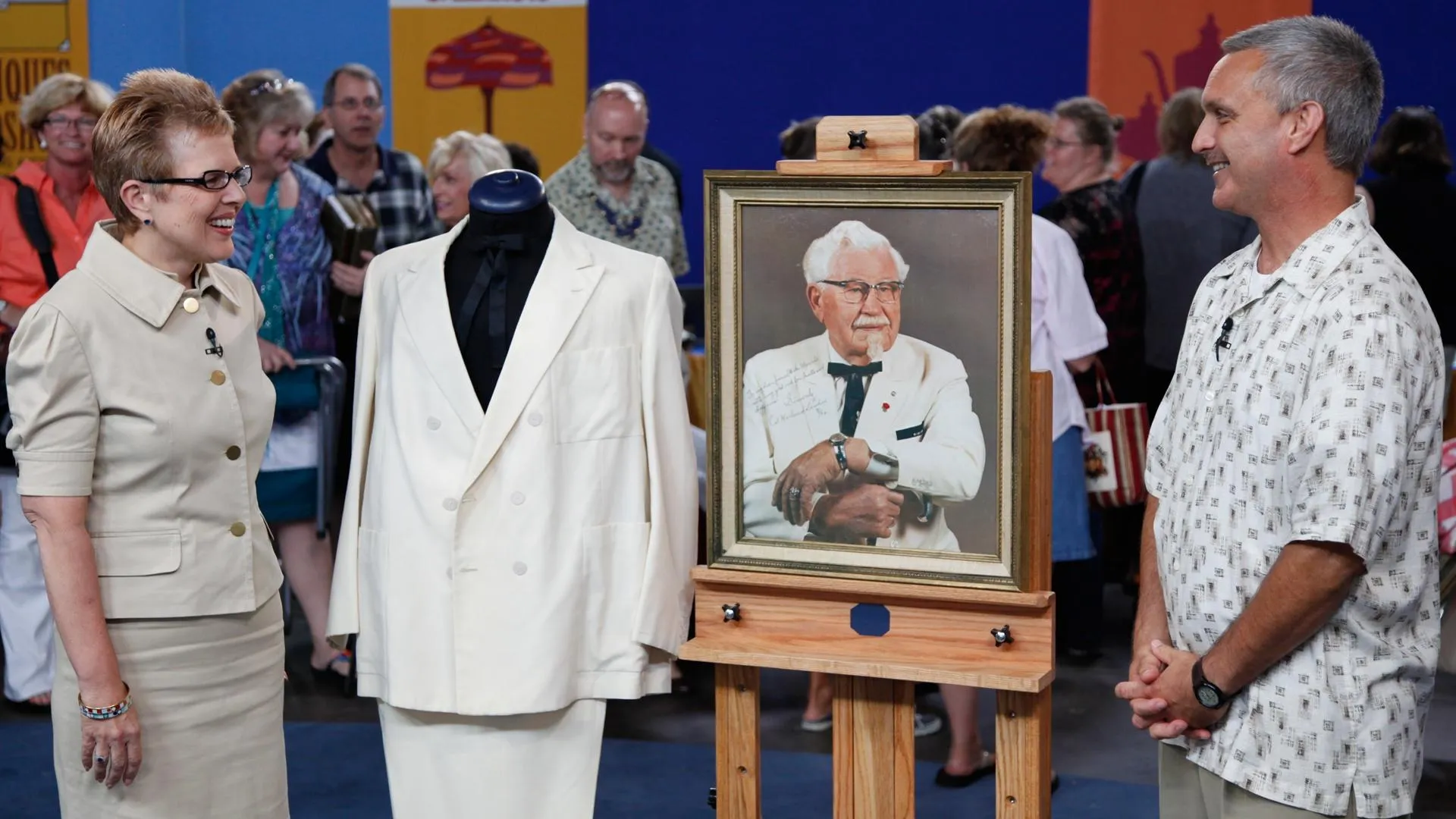GUEST: I know that it's considered Pennsylvania folk art, and it's a salt box that was made by my great-great-grandfather, Samuel L. Plank.
APPRAISER: Now, you refer to it as a salt box.
GUEST: Yes.
APPRAISER: Have you used it for salt?
GUEST: No, we actually, growing up, used it as a candy box. My mom kept candy in it, and we would reach in and, you know, grab a little candy bar.
APPRAISER: Well, I have to tell you, I got very excited when I saw it.
GUEST: You did?
APPRAISER: It's such a wonderful example of Pennsylvania Dutch, which was actually Pennsylvania German folk art. And wonderful decoration of birds and flowers. And Samuel Plank made several of these. Do you know exactly how many he made?
GUEST: I don't. The only thing I really know is that he usually signed the salt boxes on the back. However, I noticed in some reading that I did that he usually did not sign boxes that he made for family members, which led me to believe he made it either for himself, his wife, or for his daughter Katie, who my great-grandfather married. And then it got passed down from there.
APPRAISER: This one has porcelain knobs. The later ones that he made had wooden knobs. And the porcelain knobs probably weren't as attractive to people because they were more Victorian looking. He lived to, I believe, 1900, and made boxes right up until the time he died. This one, I think, probably is one of his earlier ones.
GUEST: Okay.
APPRAISER: Dating about 1880.
GUEST: Wow.
APPRAISER: Another feature about this one is that this lollipop top here is connected on a very narrow standard here, which is quite a bit thinner than many of the others that he made, and probably some of the early boxes that he made, they broke because they weren't strong enough.
GUEST: I see.
APPRAISER: So the later ones he made wider. This box is made of poplar. I have never seen a Samuel Plank salt box at auction. And I think it's truly one of the best ones, possibly, that he made.
GUEST: That's very exciting.
APPRAISER: Today, the market is not as strong as it was, but there are still lots of Pennsylvania collectors who would die to have one of these boxes. And I think at auction, this could carry an estimate of $20,000 to $30,000.
GUEST: Really? That's fabulous.
APPRASER: I love it.
GUEST: (laughing)
APPRAISER: When you brought it in, my eyes just lit up.



